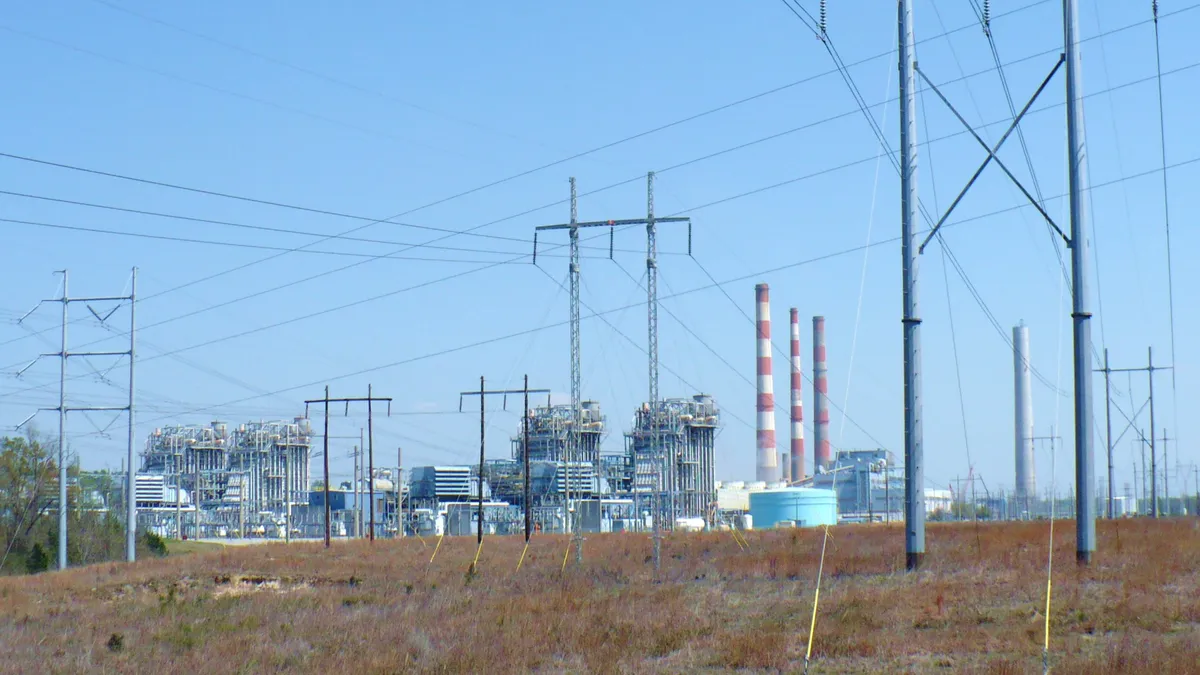Dive Brief:
- The Alabama Public Service Commission (PSC) voted unanimously on Tuesday to authorize Southern Company to buy, build or contract for nearly 2 GW of natural gas resources to ensure system resilience.
- Alabama Power, a Southern Company subsidiary, previously announced it is switching from a summer-peaking to a winter-peaking system, and proposed several expansions in solar, energy efficiency and — mainly — natural gas, which were expected to cost about $1.1 billion, the utility previously told AL.com.
- Regulators did not approve five proposed solar facilities with battery storage, which would have totaled 400 MW, indicating that the resource additions should be considered in a separate docket focused on procurements. However, about 200 MW of programs to increase energy efficiency and mitigate peak energy usage were approved.
Dive Insight:
Participants in the docket have verified that solar and solar-plus-storage buildout in the state would have been a cheaper alternative than the approved natural gas expansion in the long term, although cost analysis remains confidential, according to Daniel Tait, Chief Operating Officer of nonprofit membership organization Energy Alabama.
"We know as parties to the case what those numbers are," he told Utility Dive.
The solar-plus-storage option was the only option to increase capacity without raising costs for customers, Tait said.
The solar-plus-storage projects "would actually put negative pressure on rates, so it would dispatch instead of more expensive coal or gas assets that are already on the system," he said, whereas the gas projects are "going to add to the customer bill. I can't say what those specific numbers are, but that's why we keep saying these are cheaper projects."
PSC staff recommendations included the natural gas units and the 200 MW of demand-side management programs, while the solar and battery component was proposed for a separate docket not focused on resiliency.
Alabama regulators must issue a final order on the utility's resiliency petition and timing remains unclear for consideration of the solar-plus-storage component as part of Docket 32382, which is focused on procurement through the Renewable Generation Certificate issued by the PSC in September 2015.
Under the proposed gas expansion, Alabama Power would buy an Autauga County natural gas plant with a 915 MW winter capacity and add a combined cycle "Unit 8" to the Barry Steam Plant for a 726 MW plant. The utility also proposed a power purchase agreement beginning in 2020 for the entire capacity of the combined cycle Hog Bayou Energy Center, which is 238 MW in winter.
The Barry Unity 8 would be expected online in November 2023 and run for 40 years. The utility is authorized to recover the "actual costs for the construction of Plant Barry Unit 8 up to 5% above the estimated in-service cost of $652 million," the utility said in an 8-K filing on Wednesday.
But while the PSC may be looking to limit the costs of any gas expansion, docket participants from Energy Alabama and the Southern Environmental Law Center, which intervened on behalf of other groups, said Alabama Power's own analysis showed solar-plus-battery-storage options were the least costly.
The utility is looking to multiple approaches for increasing its power supply capacity.
Alabama Power said the solar-plus-storage, gas and energy efficiency additions were part of a nearly 20% fleet capacity increase necessary for resilience, when filing the request in 2019.
"What I can tell you is that Alabama Power did not get all of what they asked for," Twinkle Andress Cavanaugh, PSC president, said during Tuesday's livestreamed PSC meeting, foreshadowing more details to come in the final decision.
"We will be reviewing the full order from the commission, when it is available," Michael Sznajderman, spokesperson for Alabama Power, said.














